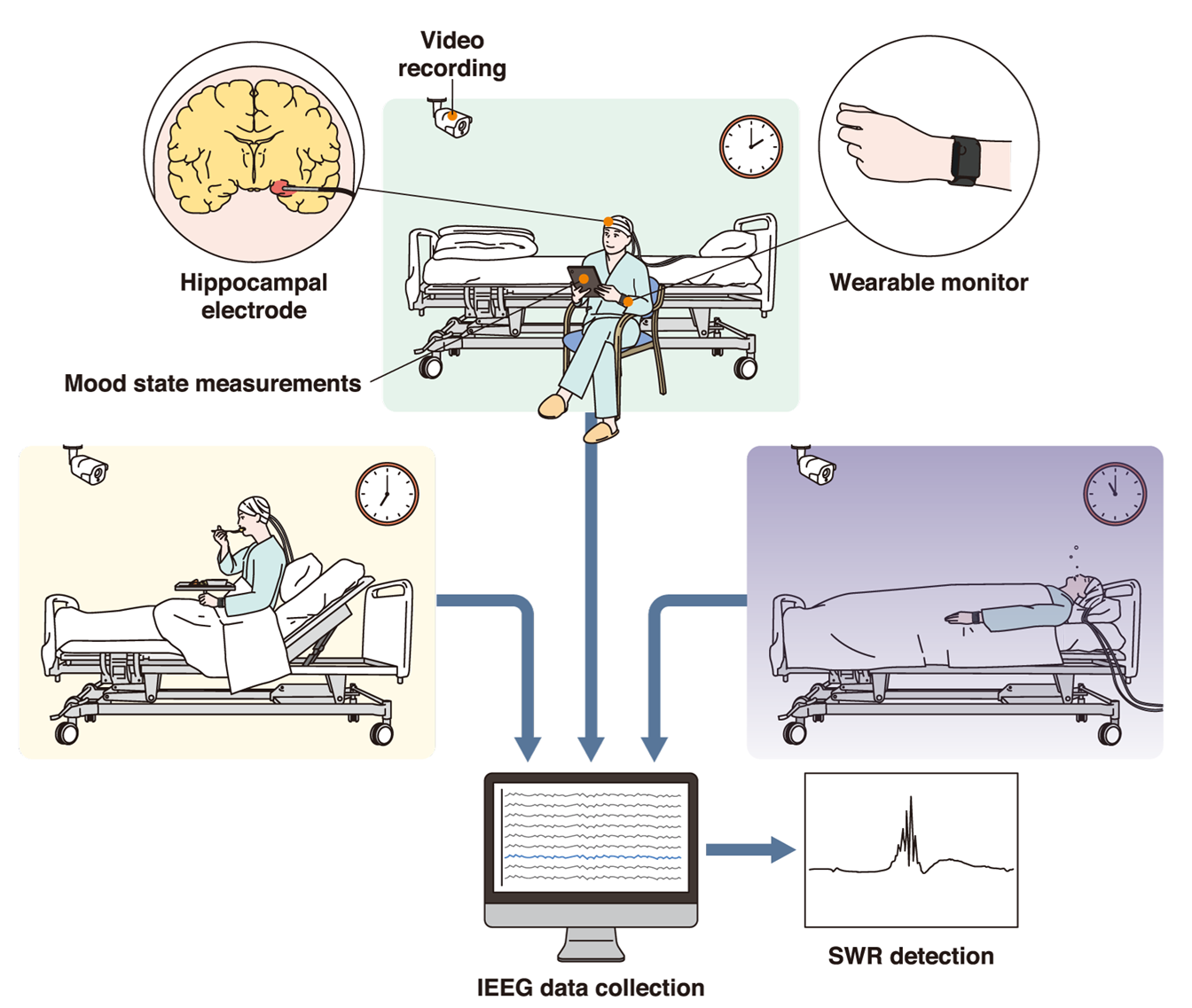A distinctive pattern of brain activity that fires up when we let our minds wander has been identified in a new study. The researchers found that patterns called “sharp-wave ripples”, which originate in the brain’s memory centers, seem to happen more often when our brains are left to start making stuff up.
The human brain is great at creating its own entertainment. According to some estimates, for up to 30 percent of the time, our brains are not concentrating on our environments at all, but rather taking off on their own imaginary flights of fancy. But scientists know comparatively little about what’s actually going on inside the brain during these “self-generated” states.
One patient population is uniquely placed to help answer some of these questions. For some people with epilepsy, drug treatments are not effective at stopping their seizures, so a surgical option might need to be considered. Neurosurgeons can literally remove the part of the brain where the seizures start, which varies between people, but first they need to track brain activity carefully to ensure they’re taking out the right bit.
Researchers in Japan recruited 10 patients who were waiting for this surgery to take part in their study. They all had electrodes implanted into their brains to track seizure activity, in the hippocampus or parahippocampal gyrus – two brain areas that are deeply associated with memory.
For 10 days, the patients were monitored and completed hourly questionnaires about their thoughts and emotions. “We mainly wanted to see if we could identify any links between the recorded brain activity and how the patients were feeling and thinking at the time,” explained lead author Takamitsu Iwata in a statement.

How the study data were collected.
Image credit: 🄫 MEDICAL FIG
Detection of sharp-wave ripples happened more often “when participants’ ongoing thoughts were more vivid, less desirable, had more imaginable properties, and exhibited fewer correlations with an external task,” the authors write. The patterns were also initiated frequently at night, so presumably during sleep when the mind is necessarily not focused on a task.
“Notably, although our study was conducted entirely on people with epilepsy, we did our best to remove epilepsy-related data so that the results are applicable to healthy populations,” said senior author Takufumi Yanagisawa. “The similarities between many of our results and those of previous studies, using other species or methods, indicate that our approach worked well.”
The authors conclude that their data helps support the hypothesis that the medial temporal lobe of the brain – where the hippocampus and parahippocampus are – has an important role in self-generated states. This, they say, could have important implications in the study of a range of different conditions and aspects of the human experience, such as intelligence and happiness.
More research building on these methods will hopefully allow us to unlock more of the secrets of what the human brain gets up to when it’s not directly focused on a task.
You might even say, this study could have a ripple effect. I’ll see myself out.
The study is published in Nature Communications.
Source Link: Brain “Ripples” Could Explain What’s Happening When Your Mind Wanders